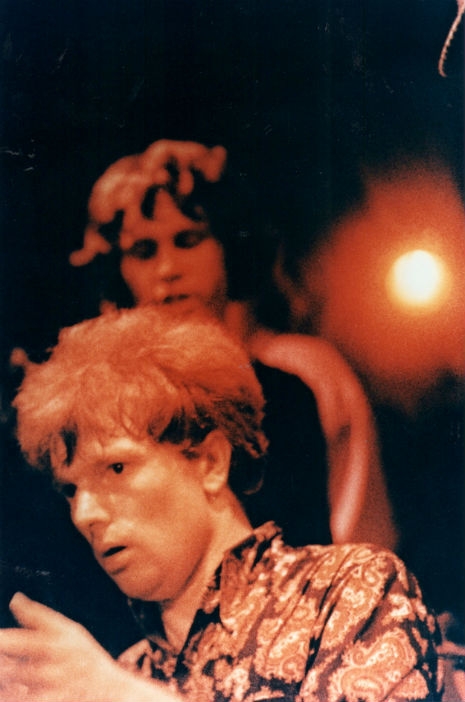
Van Morrison and Jim Morrison, no relation
The “revenge recordings” of Van Morrison provide a fascinating test case of the limits of authenticity in pop music—how inauthentic and desultory can a gifted musician’s performance be and still retain musical value, if such it does?
The two years after the release of “Brown Eyed Girl” in June 1967 was a heady period for Van Morrison. He suddenly had a smash hit on his hands, reaching #10 on the Billboard Hot 100, his scorned New York record producer Bert Berns died, and he jumped from Berns’ Bang Records to Warner Brothers, for whofm he would record and release his masterpiece, Astral Weeks. After the death of Berns on December 30, 1967, Morrison found himself in a contract dispute with Berns’ widow Ilene; among other things, Morrison was barred from performing on stage or recording in the New York area. Morrison was already annoyed because he had had no say in the release of Blowin’ your Mind! in September 1967 and had only found out about it when a friend called to say that he had purchased it in a store.
As part of the process of switching from Bang to Warner Bros., Morrison had to deliver an album to Bang, and he did so in a single session (almost certainly), although nobody seems to have documented what date that session was. They appear on a compilation with the year 1967 named in the title (New York Sessions ‘67), and his biographer Clinton Heylin asserts that they were recorded in 1969. Given that Astral Weeks was released in late 1968, I find it exceedingly likely that the songs were recorded in early to mid-1968 at the latest.
These tracks have made the rounds before—it was WFMU that brought them to my attention, way back in 2005. The titles make for an amusing read: “Ring Worm,” “Chickee Coo,” “You Say France and I Whistle,” “The Big Royalty Check,” and “Want a Danish?” certainly don’t sound like usual album fare. The longest of the songs clocks in at 1:36, and the shortest at at tidy 53 seconds. The whole thing—consisting of 31 songs—lasts just 35 minutes, and it would take a foolhardy gambler indeed to wager that the recording session took even five minutes longer than that.
You can feel the heat of Morrison’s contempt for the poppy fare he’d been pressured to produce for Berns—the first few songs directly reference “Twist and Shout,” with titles like “Shake and Roll” and “Stomp and Scream,” and a later one, “La Mambo,” is some kind of debased version of “La Bamba.” (Of course, at the same time, this could also signify some unconscious adoration or respect for the some of the foundational recordings of rock and roll.) Lyrically, there’s frequent mention of two phrases “funky Broadway” and “Sock it to me, baby,” although there are others as well. Several songs go in for some abuse of a random fellow named “George,” including “Here Comes Dumb George,” “Dum Dum George,” “Hold On George,” and “Goodbye George.” Me, I’d rather get to know the eponymous female of “Shake It Mable.” “Blow in Your Nose” is obviously a cutting reference to his first album for Berns, Blowin’ your Mind!—as is, I suppose, “Nose in Your Blow.”
Clinton Heylin in Can You Feel the Silence?: Van Morrison: A New Biography points out that “Thirty Two” contains a pretty withering condemnation of Berns’ production style:
[Morrison] would later parody what he viewed as Berns’s tendency to over-produce in one of the ‘revenge’ songs recorded to get out of the Bang contract … mockingly chanting, ‘Yeah, we’ll get a guitar … we’ll get three guitars / No!, No!!, we’ll get four guitars / and we’ll get Herbie Lovelle to play drums / and we’ll do the sha-, sha-la-la bit.’
The lyrics to “Dum Dum George” are pretty direct as well:
This here’s the story about dumb, dumb George,
Who came up to Boston one sunny afternoon.
He drove up from New York City,
And he was freaky,
And he wanted to record me,
And I said, “George, you’re dumb.”
And he said, “I know. Why do you think I make so much money?
I wanna do a record that’ll make number one.”
Dumb, dumb.
It has been asserted that these tracks, variously called the “revenge songs” or the “contractual obligation album” are “devoid of any substance or originality or artistic merit,” but that’s very far from clear to me. Clearly Morrison felt that they were worthless, there’s little disputing that. And they obviously show very little variation. But in terms of sheer musical merit, they’re not bad at all—they’re funny, which is always a blessing, and Morrison’s urgent guitar strumming and rich voice are highly pleasurable to listen to. Morrison’s anger also makes for an interesting listen. Of course, we get almost none of Morrison’s vocal range and he sounds utterly bored by the songs, which matters. I still think they make fairly good tracks to put on at a party.
These tracks have appeared on a few different compilations, including the aforementioned New York Sessions ‘67, The Complete Bang Sessions, and the aptly titled Payin’ Dues.
Here they all are, on YouTube:
“Twist and Shake”
“Shake and Roll”
“Stomp and Scream”
“Scream and Holler”
“Jump and Thump”
“Drivin’ Wheel”
“Just Ball”
“Shake it Mable”
“Hold On George”
“The Big Royalty Check”
“Ring Worm”
“Savoy Hollywood”
“Freaky If You Got This Far”
“Up Your Mind”
“Thirty Two”
“All The Bits”
“You Say France and I Whistle”
“Blow In Your Nose”
“Nose In Your Blow”
“La Mambo”
“Go For Yourself”
“Want A Danish?”
“Here Comes Dumb George”
“Chickee Coo”
“Do It”
“Hang On Groovy”
“Goodbye George”
“Dum Dum George”
“Walk And Talk”
“The Wobble”
“Wobble and Ball”